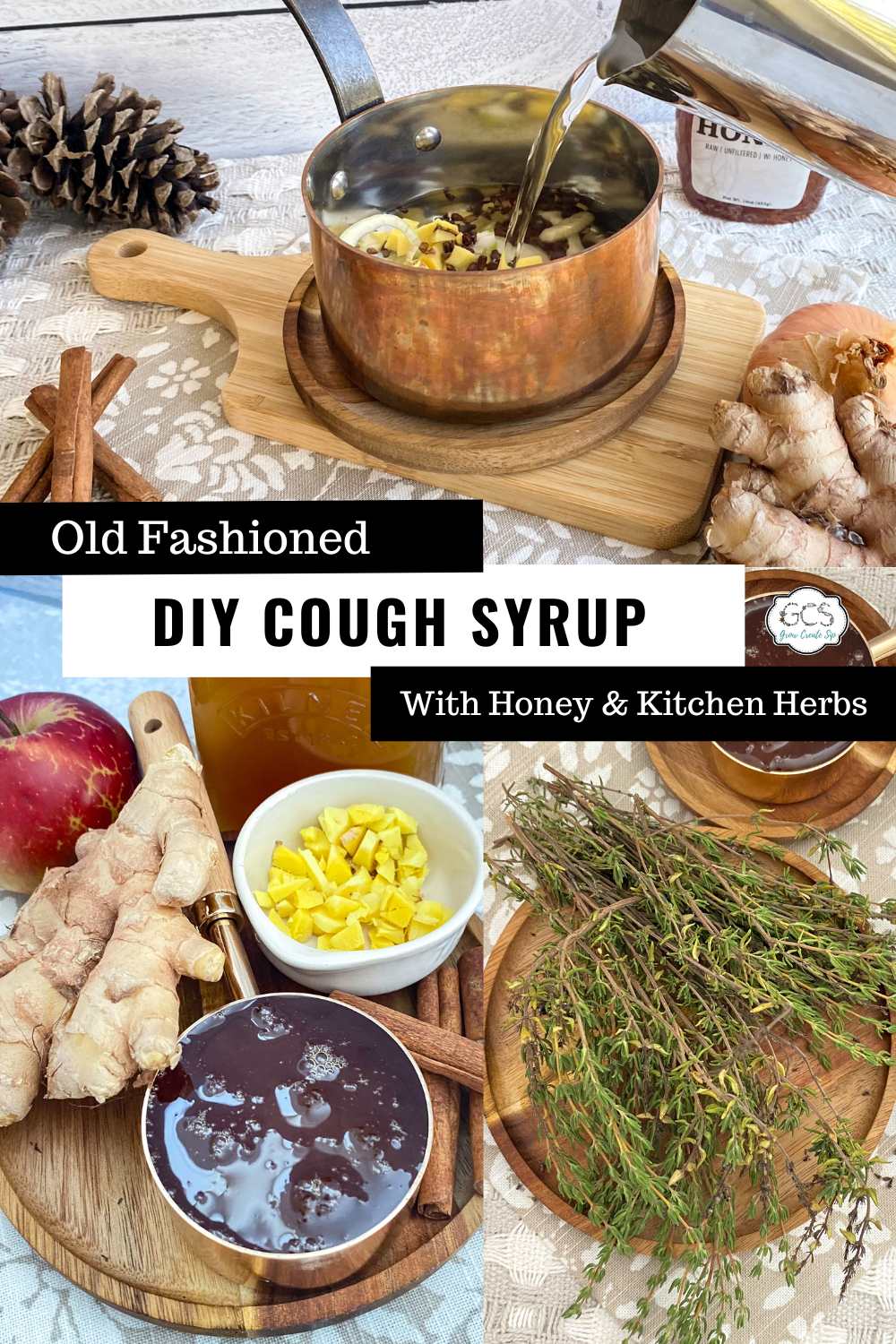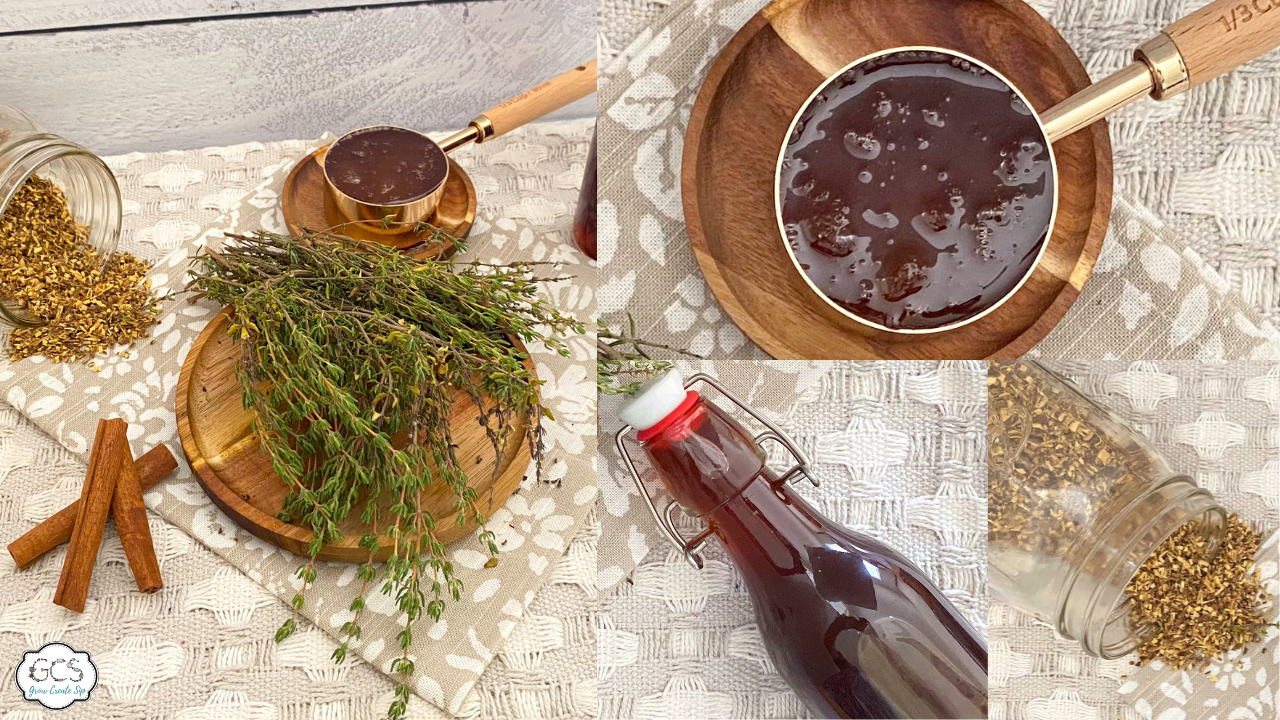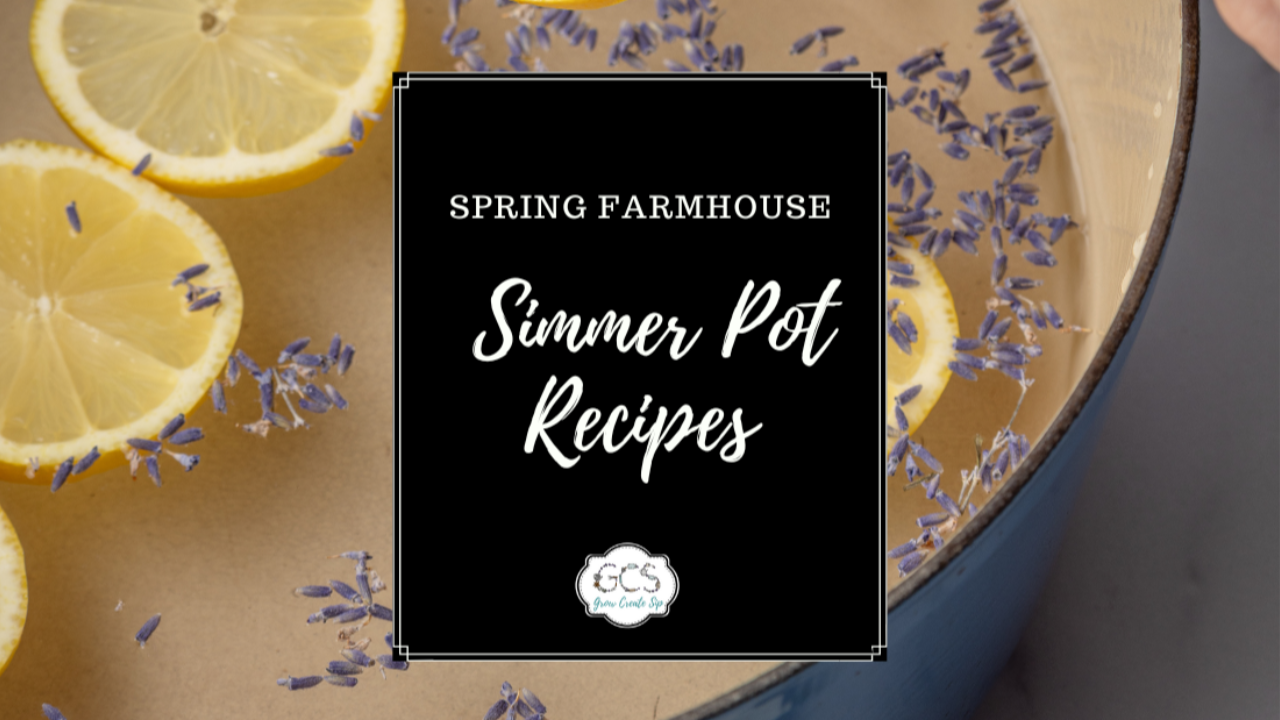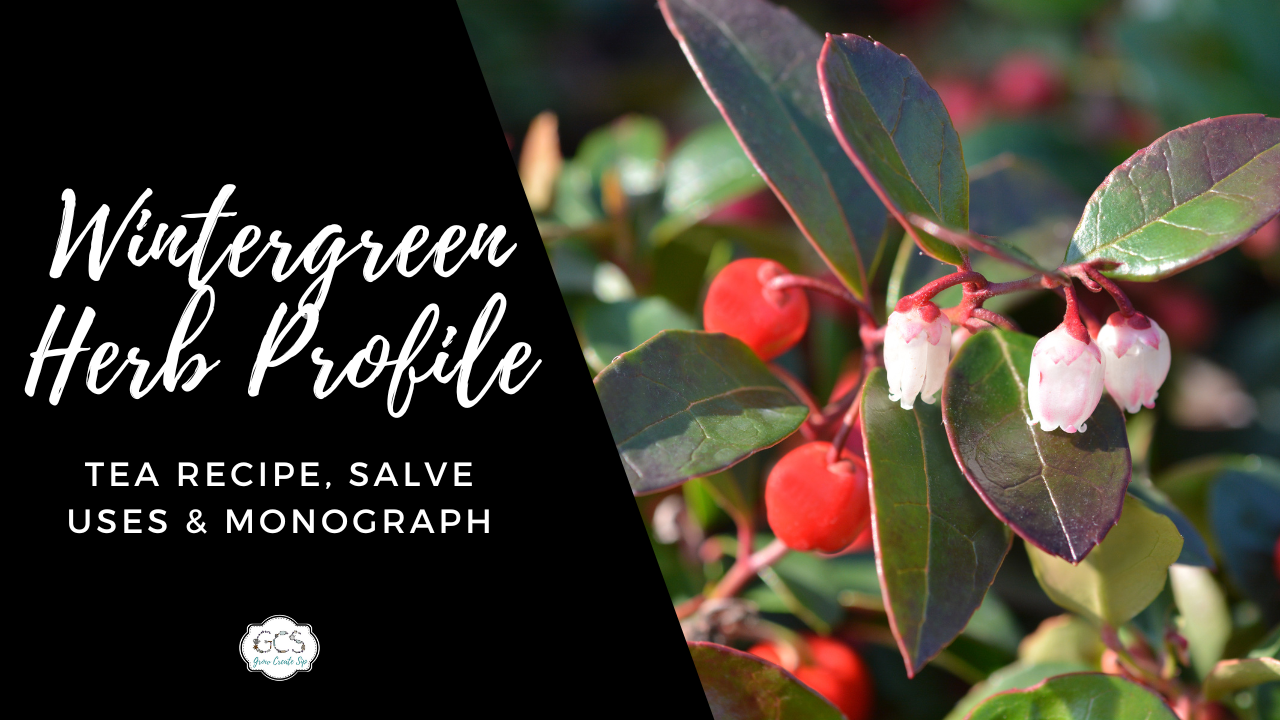Old-Fashioned DIY Cough Syrup with Honey and Kitchen Herbs (No Elderberry or Apothecary Needed)
Oct 28, 2025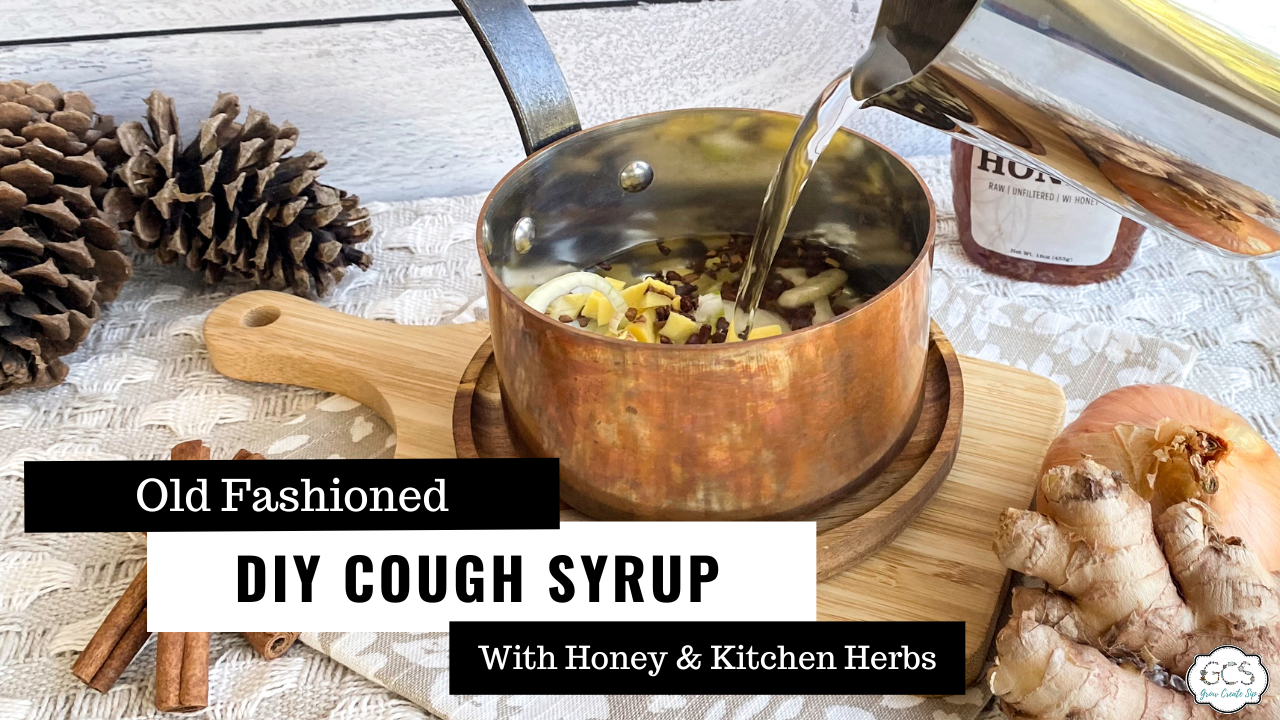
On the farm, our go-to is usually a wild cherry bark syrup I keep on hand for the colder months. But let’s be honest—there are times when the kids are coughing, and I realize I haven’t brewed a fresh batch yet. That’s when I head to the kitchen and grab what’s already there: honey, garlic, onion, ginger, thyme. This old-fashioned style cough syrup is perfect for when elderberry isn’t available, and you need something simple, soothing, and effective—fast.
This post shares an easy, adaptable syrup recipe made from kitchen staples like honey, onion, and ginger. You’ll learn how to build your own remedy with common pantry herbs to ease a cough naturally—even when your usual ingredients are missing.

The Legal Stuff
This blog is provided by St. Fiacre's Farm LLC for informational purposes only. It does not constitute medical advice, and you should always seek the advice of a qualified healthcare provider for any medical questions or concerns. These statements have not been evaluated by the Food and Drug Administration. This product is not intended to diagnose, treat, cure, or prevent any disease. Please note that we may earn a small commission on any purchases you make through our affiliate links, at no additional cost to you. Thank you for your support!
What’s Really in That Store-Bought Cough Syrup?
Many over-the-counter cough syrups are designed to suppress symptoms—but not all coughs should be suppressed.
Coughing is the body’s natural way of clearing the respiratory tract. Suppressing it synthetically, especially when the cough is “productive” (wet or mucousy), can interfere with that process. What we often want is not to silence the cough entirely, but to support the body’s effort to clear congestion or to gently soothe an irritated, spasmodic cough so we can rest.
In addition, common ingredients like dextromethorphan (DXM) can have side effects like dizziness, nausea, and drowsiness, even at normal doses (source). High doses or frequent use can increase those risks—especially in children.
Many formulas also contain acetaminophen, which can strain the liver when combined with other medications (source). Others rely on high-fructose corn syrup, which has been associated with impaired immune function and metabolic stress (source, source).
While these products are legal and sometimes helpful, they often mask the root issue rather than support the body in clearing or resolving it. That’s why I reach for honey and herbs when I can—they work with the body, not against it.

Why I Reach for the Kitchen First
When the cough shows up, sometimes its too late to make something fancy. The signs come first—shiny eyes, flushed cheeks, crankiness—and if I don’t already have our wild cherry bark syrup ready, I need to act fast.
What I use instead:
-
Raw honey – Coats the throat and helps reduce coughing. Its antimicrobial and antioxidant properties have been documented in various studies (Cureus, 2021). We keep this raw honey in our pantry.
-
Onion or garlic – Contain sulfur compounds that may help break up mucus and support respiratory health (Source). We usually have these garlic granules on hand.
-
Ginger & Cinnamon – Both are warming herbs used traditionally to support circulation and ease respiratory discomfort. Ginger has demonstrated anti-inflammatory and bronchodilating effects in clinical and lab studies (PMC, 2013; Examine summary).Cinnamon has been shown in lab studies to have antimicrobial activity against common pathogens (PMC, 2015) We like to use this cinnamon in syrup blends.
-
Thyme tea – A traditional remedy for respiratory issues with antispasmodic and expectorant properties. Its use is supported by both history and modern research (Nutrition Today, 2016). We stock this dried thyme in our winter remedies.
The fastest remedy I’ve made? Just hot water with a spoonful of raw honey and a pinch of garlic powder. If I have thyme on hand, a strong tea stirred with honey does the trick just as well.
Getting the kids to take it is always a gamble—until they taste the honey. Garlic and onion aren’t exactly their favorites, but that sweet coating makes a big difference. A little cinnamon helps round out the flavor, especially for the more skeptical ones.
If I’m adding licorice root, I use it sparingly and always keep in mind its cautions—particularly for boys and anyone with blood pressure concerns.
Pantry Herbs That Actually Work (and Why)
Let’s dig a little deeper into how these humble kitchen staples work behind the scenes:
Honey – This is more than a sweetener. Raw honey coats the throat and helps quiet cough reflexes. It’s also been studied for its antimicrobial and anti-inflammatory actions and shown to be just as effective as some over-the-counter cough medicines in certain situations (source).
Onion – Onions are rich in compounds like quercetin and sulfur, which support the respiratory system and may help reduce inflammation. They’ve been used for generations in old-fashioned syrup recipes for breaking up mucus and easing chesty coughs (source).
Garlic – Immune-boosting and full of allicin, garlic acts as a natural antimicrobial and antiviral. It’s one of those herbs that blends surprisingly well despite a strong flavor (source).
Ginger – This warming root helps relax airway muscles and soothe throat irritation. It has anti-inflammatory properties and helps support circulation, which can speed recovery from respiratory discomfort (source).
Cinnamon – Beyond flavor, cinnamon supports circulation and adds warmth. It helps make remedies more comforting, especially in cold or damp weather (source).
Thyme – A traditional respiratory herb, thyme is valued for its expectorant and antimicrobial qualities. When you need something to help loosen phlegm and support easier breathing, thyme is one of the gentle, reliable options (source).
How to Make Simple Pantry Cough Syrup at Home
Whether it’s late at night, during a snowstorm, or just a busy week—sometimes you need a quick, comforting remedy you can make right in your kitchen. These pantry-based syrups are inspired by old-fashioned home remedies and use familiar ingredients like onion, garlic, cinnamon, and honey.
We’ve included three gentle, effective recipes below: one for wet coughs, one for dry spasmodic coughs, and one specially crafted for children.
Choosing the Right Cough Syrup for the Job
This chart doesn’t diagnose—but it can help you match what you’re seeing to traditional herbal support. Always consult your healthcare provider, especially for persistent or severe symptoms.
| Cough Type | Common Clues | Suggested Syrup |
|---|---|---|
| Wet / Mucousy | Rattling sound, congestion, phlegm | Expectorant Syrup (onion, ginger, cinnamon) |
| Dry / Spasmodic | Tickling in throat, fits at night, little to no mucus | Relaxing Syrup (thyme, chamomile, licorice root) |
| Children (Age 1+) | Mild cough, irritability, light congestion | Child-Friendly Syrup (apple, honey, cinnamon) |
Wrapping it up in the kitchen
When wild cherry bark syrup isn’t an option or you just need something right now, pantry cough syrup is a beautiful backup. These ingredients are humble, effective, and right at your fingertips. The best part? You’ll likely find your family starts asking for the “onion honey” instead of dreading it. It might take a little while but it is worlds better than that OTC flavor of cough syrup. I have childhood nightmares about choking the stuff down.
If you’re ready to explore more traditional recipes and herbal kitchen skills, check out the Homestead Pantry Herbs E‑Book from Farmhouse Teas for even more ways to use herbs you already have in your pantry.
Learn More About Herbs for Coughs, Colds & Flu
